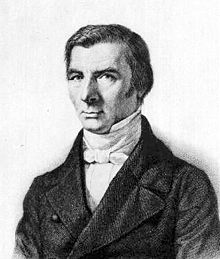As described by Andrew Beattie, The “Candle Maker’s Petition” is a satire of protectionist tariffs written the by great French economist, Frederic Bastiat. In many ways, it expanded on the free market argument against mercantilism set forth by Adam Smith, but Bastiat’s target was government tariffs that were levied to protect domestic industries from competition. In Bastiat’s “Candle Maker’s Petition”, all the people involved in the French lighting industry, including “the manufacturers of candles, tapers, lanterns, sticks, street lamps, snuffers and extinguishers, and from producers of tallow, oil, resin, alcohol, and generally of everything connected with lighting” call upon the French government to take protective action against the unfair competition of the sun.
They argue that forcing people to close “all windows, dormers, skylights, inside and outside shutters, curtains, casements, bull’s-eyes, deadlights, and blinds – in short, all openings, holes, chinks, and fissures through which the light of the sun is wont to enter houses” will lead to a higher consumption of candles and related products. In turn, they reason, the industries that those in the lighting industry depend on for materials will have greater sales, as will their dependent suppliers, and so on until everyone is better off without the sun.
From the Manufacturers of Candles, Tapers, Lanterns, Candlesticks, Street Lamps, Snuffers, and Extinguishers, and from the Producers of Tallow, Oil, Resin, Alcohol, and Generally of Everything Connected with Lighting. To the Honorable Members of the Chamber of Deputies. Gentlemen:
You are on the right track. You reject abstract theories and have little regard for abundance and low prices. You concern yourselves mainly with the fate of the producer. You wish to free him from foreign competition, that is, to reserve the domestic market for domestic industry.
We come to offer you a wonderful opportunity for applying your—what shall we call it? Your theory? No, nothing is more deceptive than theory. Your doctrine? Your system? Your principle? But you dislike doctrines, you have a horror of systems, and, as for principles, you deny that there are any in political economy; therefore we shall call it your practice—your practice without theory and without principle.
We are suffering from the ruinous competition of a foreign rival who apparently works under conditions so far superior to our own for the production of light that he is flooding the domestic market with it at an incredibly low price; for the moment he appears, our sales cease, all the consumers turn to him, and a branch of French industry whose ramifications are innumerable is all at once reduced to complete stagnation. This rival, which is none other than the sun, is waging war on us so mercilessly that we suspect he is being stirred up against us by perfidious Albion (excellent diplomacy nowadays!), particularly because he has for that haughty island a respect that he does not show for us.
We ask you to be so good as to pass a law requiring the closing of all windows, dormers, skylights, inside and outside shutters, curtains, casements, bull’s-eyes, deadlights, and blinds—in short, all openings, holes, chinks, and fissures through which the light of the sun is wont to enter houses, to the detriment of the fair industries with which, we are proud to say, we have endowed the country, a country that cannot, without betraying ingratitude, abandon us today to so unequal a combat.
Be good enough, honorable deputies, to take our request seriously, and do not reject it without at least hearing the reasons that we have to advance in its support.
First, if you shut off as much as possible all access to natural light, and thereby create a need for artificial light, what industry in France will not ultimately be encouraged? If France consumes more tallow, there will have to be more cattle and sheep, and, consequently, we shall see an increase in cleared fields, meat, wool, leather, and especially manure, the basis of all agricultural wealth.
If France consumes more oil, we shall see an expansion in the cultivation of the poppy, the olive, and rapeseed. These rich yet soil-exhausting plants will come at just the right time to enable us to put to profitable use the increased fertility that the breeding of cattle will impart to the land.
Our moors will be covered with resinous trees. Numerous swarms of bees will gather from our mountains the perfumed treasures that today waste their fragrance, like the flowers from which they emanate. Thus, there is not one branch of agriculture that would not undergo a great expansion.
The same holds true of shipping. Thousands of vessels will engage in whaling, and in a short time we shall have a fleet capable of upholding the honor of France and of gratifying the patriotic aspirations of the undersigned petitioners, chandlers, etc. But what shall we say of the specialties of Parisian manufacture? Henceforth you will behold gilding, bronze, and crystal in candlesticks, in lamps, in chandeliers, in candelabra sparkling in spacious emporia compared with which those of today are but stalls.



Recent Comments